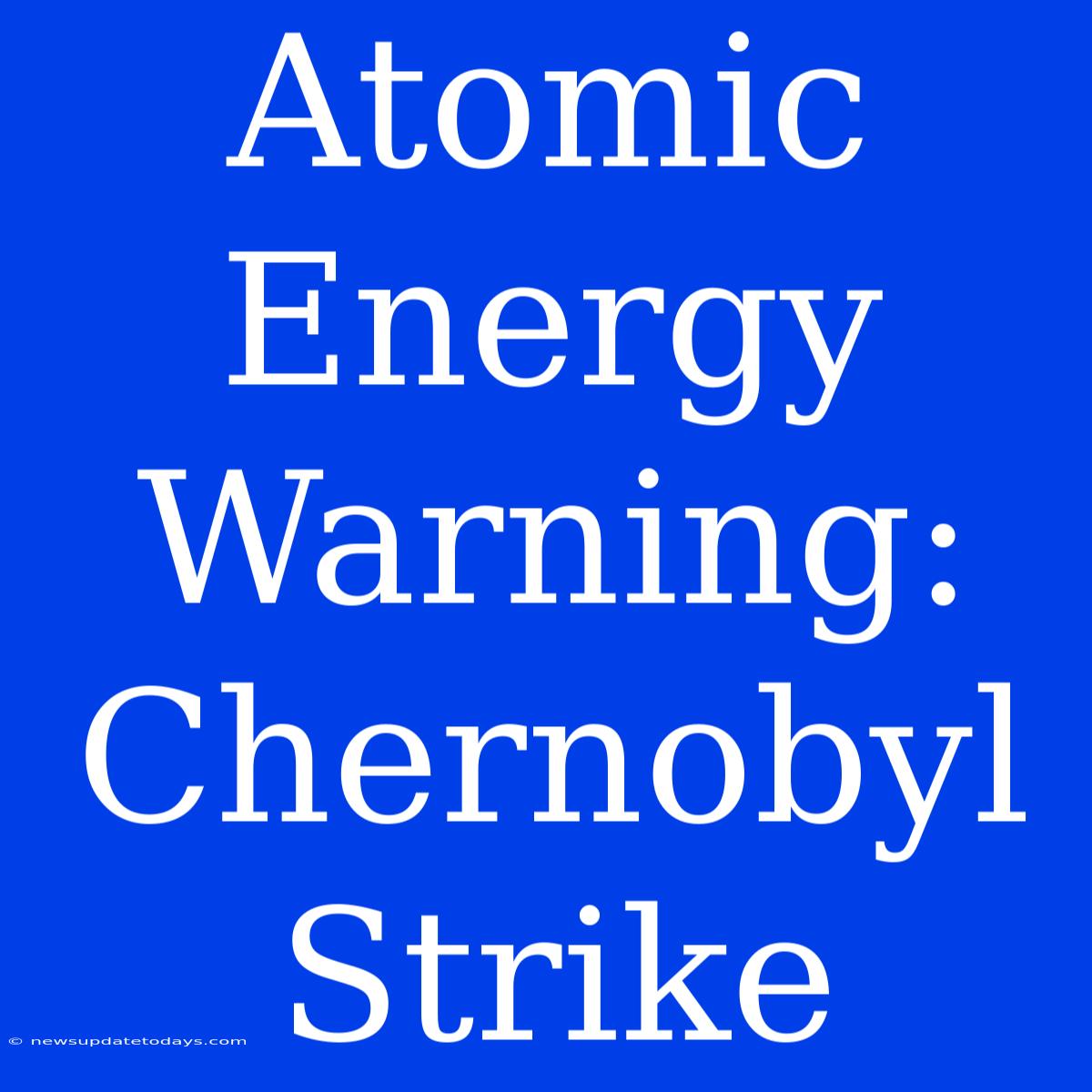Atomic Energy Warning: Chernobyl Strike - A chilling reminder of nuclear disaster
The Chernobyl disaster, a catastrophic nuclear accident that occurred on April 26, 1986, remains a stark warning about the devastating consequences of nuclear power gone wrong. This article delves into the event, its long-term effects, and the crucial lessons learned about nuclear safety and preparedness. We'll explore the accident's impact on the environment, human health, and global perceptions of atomic energy.
The Night the Reactor Melted Down
The Chernobyl Nuclear Power Plant, located in the Ukrainian Soviet Socialist Republic, experienced a catastrophic power surge during a safety test. This surge led to a runaway chain reaction, resulting in a massive explosion and fire that ripped through the reactor core. The explosion released a plume of radioactive material into the atmosphere, spreading across vast swathes of Europe.
Immediate and Long-Term Impacts
The immediate aftermath was chaotic. Thousands of people were evacuated from the surrounding area, but many were exposed to lethal levels of radiation. The long-term effects are still being felt today. Increased rates of cancer, birth defects, and other health problems continue to plague those affected by the fallout. The exclusion zone surrounding Chernobyl remains largely uninhabitable, a haunting testament to the enduring power of nuclear contamination.
Environmental Devastation
Beyond human suffering, the Chernobyl disaster caused widespread environmental damage. The surrounding forests were decimated, wildlife populations suffered dramatically, and the soil remains contaminated to this day. The impact on the environment highlights the long-lasting consequences of nuclear accidents, emphasizing the importance of robust safety protocols.
Lessons Learned and Future Implications
The Chernobyl disaster prompted significant changes in the nuclear industry worldwide. New safety regulations and improved reactor designs were implemented. The accident also raised public awareness about the potential dangers of nuclear power and sparked renewed debate about its role in global energy production. The disaster underscores the critical need for transparency, rigorous safety standards, and international cooperation in managing nuclear facilities.
A Sobering Reminder
The Chernobyl disaster is not just a historical event; it's a potent reminder of the potential risks associated with atomic energy. Understanding the lessons learned from this tragedy is paramount in ensuring that such catastrophic events are prevented in the future. Continued investment in nuclear safety, rigorous regulatory oversight, and open communication are essential to mitigating the risks associated with this powerful energy source. The legacy of Chernobyl demands vigilance and a commitment to preventing similar disasters.
Keywords: Chernobyl, Chernobyl disaster, nuclear accident, nuclear power, radiation, atomic energy, nuclear safety, environmental impact, health effects, exclusion zone, Ukraine, Soviet Union, safety regulations, nuclear energy, radioactive contamination.

